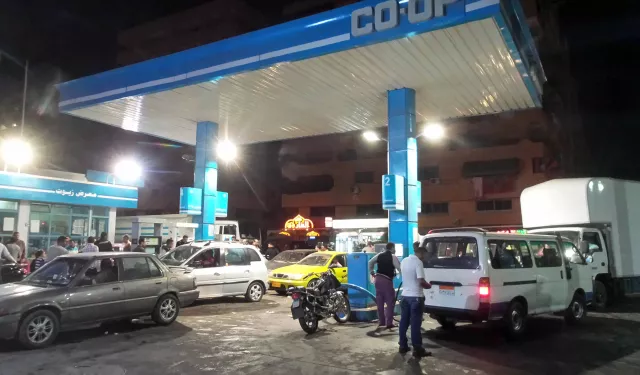Egypt’s government took what officials described as a bitter but unavoidable decision last Friday to raise diesel prices, despite the risk of igniting fresh inflation, in an effort to narrow the widening gap between the fuel’s real cost and its subsidized retail price. Two petroleum ministry sources told Al Manassa the shortfall now reaches about 8.5 Egyptian pounds per liter for imported diesel.
The Ministry of Petroleum announced the second fuel price rise this year, lifting diesel to 17.5 pounds from 15.5, a 13% increase and the second highest among fuel categories.
“Petrol prices are now close to cost, but diesel remains heavily subsidized. The government avoided removing support entirely because of its broad impact on transport and production,” said an official at the General Petroleum Authority, speaking on condition of anonymity.
Hours after the increase, governors approved fare hikes of 10–15% for public transport, while bakery owners raised prices by 25–50 piastres per loaf.
A second ministry source said producing a liter of diesel locally costs about 21 pounds ($0.4), covering roughly 60% of the market’s supply, while imported or partly imported diesel costs 4–5 pounds ($0.08–$0.10) more per liter. “Subsidies now range from 3.5 pounds for local diesel to about 8.5 pounds for imported,” the source added.
The government expects the combined rise in petrol and diesel prices to save around 14 billion pounds ($290 million) this quarter if exchange and oil prices remain stable.
Fuel subsidies for the current fiscal year stand at 75.3 billion pounds, down more than half from last year’s 154.4 billion — part of an IMF-backed reform drive to unwind decades of energy subsidies.
Right groups warn that further fuel liberalization, begun a decade ago, will deepen inflation and strain household budgets. Diesel, which sold for just 1.8 pounds per liter nine years ago, now costs almost ten times as much.
The petroleum ministry source said no clear plan exists for future diesel prices but hinted that “future adjustments might raise petrol more and slow diesel hikes to avoid hurting living conditions.”
Former Petroleum Minister Osama Kamal told Al Manassa that the government’s move was “unavoidable,” noting that “diesel accounts for more than 65% of total fuel subsidies.”
Others, however, dispute that view. Petroleum expert Ramadan Abu El-Ela told Al Manassa the state should prioritize boosting domestic production instead of passing costs to consumers. “It’s not the public’s role to shoulder energy costs,” he said. “The government must improve efficiency and cut its reliance on imports.”

